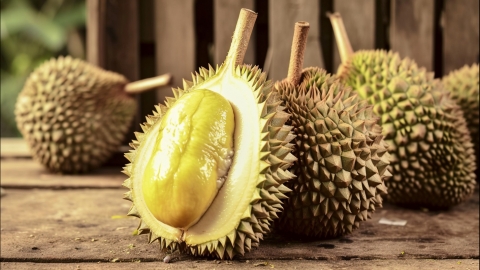Can people with high blood sugar eat durian?
Generally speaking, whether people with high blood sugar can eat durian depends on their blood sugar control. If blood sugar is well controlled, a very small amount may be consumed; however, if blood sugar control is poor, eating durian is not recommended. It is advised that individuals with high blood sugar should first understand their own blood sugar condition before considering consumption and make cautious choices. Detailed analysis is as follows:

If a person with high blood sugar has stable blood sugar levels recently, with fasting and post-meal blood sugar within the ideal range and no significant fluctuations, a very small amount of durian—for example, a small piece—may be consumed. The calories from the durian should be included in the total daily caloric intake, and consumption of other staple foods or high-calorie foods should be reduced accordingly. Blood sugar changes should also be monitored after consumption.
For individuals with poorly controlled blood sugar—for instance, those with consistently high fasting blood sugar, large fluctuations in post-meal blood sugar, or those in a stage of unstable blood sugar—eating durian is not recommended. Durian has a high sugar content and a considerable glycemic index, which may easily cause a rapid increase in blood sugar after consumption, making blood sugar control more difficult.
To better manage blood sugar, individuals with high blood sugar are advised to prioritize foods with a low glycemic index and low sugar content in their daily diet, monitor blood sugar regularly, adjust dietary habits according to fluctuations, maintain appropriate physical activity such as walking or swimming, and develop good lifestyle habits to help maintain stable blood sugar levels.









